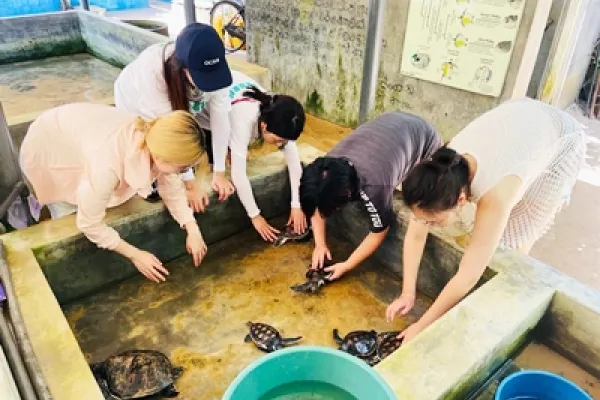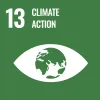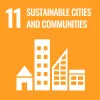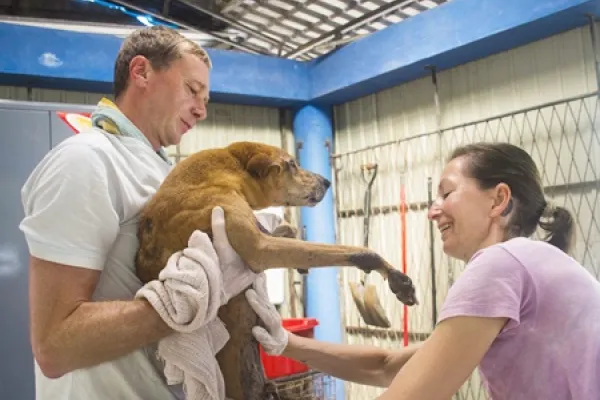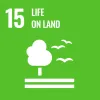Overview
O principal objetivo deste projeto é capacitar mulheres rurais carentes do Sri Lanka com habilidades essenciais em inglês e outras áreas da vida, para que possam crescer pessoalmente, aumentar sua confiança e autoestima, interagir de forma mais eficaz com suas famílias e filhos em casa e se tornarem mais empregáveis no futuro. Por uma série de razões sociais e econômicas, a maioria dessas mulheres nunca teve a oportunidade de adquirir essas habilidades e seguir uma carreira de sucesso; portanto, é imprescindível que esse serviço seja disponibilizado a elas para apoiar seu desenvolvimento e bem-estar.
Contexto do Programa
Neste projeto, trabalhamos normalmente com mulheres rurais do Sri Lanka, que representam um dos segmentos mais vulneráveis da sociedade. A situação dessas mulheres foi fortemente influenciada pela cultura tradicional, pela história colonial e pelas políticas pós-independência.
Não é segredo que os estereótipos de gênero impactam negativamente as mulheres, particularmente em comunidades rurais de países em desenvolvimento como o Sri Lanka. Nesses países, as mulheres continuam sendo vistas, na melhor das hipóteses, como “esposas dependentes” ou “provedoras de renda”. As responsabilidades familiares tradicionais de uma mulher, especialmente como mãe, esposa e dona de casa, restringem suas escolhas profissionais, assim como as atitudes de sua família e da sociedade em relação a certos tipos de emprego.
A maioria das mulheres no Sri Lanka é alfabetizada em cingalês e/ou tâmil, os dois principais idiomas locais do país. Isso se deve ao fato de que, na década de 1950, o ensino fundamental, médio e superior, incluindo o ensino universitário, tornou-se gratuito e passou a ser ministrado nos idiomas locais, em vez de em inglês. Isso levou a uma rápida expansão das oportunidades educacionais para as mulheres. Os pais não precisavam mais escolher entre investir na educação de filhos ou filhas. As taxas de participação escolar aumentaram rapidamente entre as mulheres e as diferenças de gênero diminuíram drasticamente na década de 1970. Apesar disso, as taxas de abandono escolar eram mais altas entre as mulheres, especialmente em bairros, assentamentos e vilarejos de baixa renda.
Em 1983, uma guerra civil devastadora eclodiu no Sri Lanka, durando 26 anos e terminando em 2009. Isso levou a uma significativa desestruturação social e trauma. Os gastos com o setor social foram reduzidos devido ao crescente custo financeiro da guerra no final da década de 1980 e na década de 1990. Como resultado, houve uma deterioração na qualidade dos serviços de saúde e educação, o que impactou negativamente a qualidade de vida das mulheres e suas famílias. Muitas mulheres foram forçadas a deixar empregos estáveis no setor formal, migrando para atividades econômicas marginais e para o trabalho autônomo inviável. Diversos estudos demonstraram que, para as mulheres rurais pobres, a qualidade de vida e as condições de trabalho se deterioraram mais durante essas três décadas, levando-as ao desemprego ou a empregos pouco qualificados. O tsunami de 2004 também contribuiu significativamente para os danos em larga escala causados à região, o que deteriorou ainda mais as perspectivas de emprego e a qualidade de vida das mulheres e suas famílias.
O empoderamento feminino pode assumir muitas formas, e optamos por focar no ensino de inglês em comunidades de base como ferramenta para capacitar essas mulheres, aumentando sua autoconfiança e tornando-as mais empregáveis (principalmente no crescente setor de turismo internacional, onde o conhecimento prático de inglês é praticamente obrigatório para conseguir um emprego digno), além de desenvolver suas habilidades básicas de vida e linguísticas. A maioria das mulheres que participam deste projeto tinha pouca ou nenhuma experiência ou familiaridade com o idioma inglês antes de ingressar nele. Elas vêm de famílias de baixa renda que sofreram muito durante os tempos turbulentos do passado recente. Muitas delas se casaram cedo e nunca tiveram a oportunidade de seguir uma carreira viável.
Quer conhecer outras maneiras de causar impacto? Confira nossos programas de voluntariado na Ásia .
Cronograma de trabalho voluntário
Cronograma de trabalho voluntário
- Sábado: Chegada + Visita à casa + Sessão inicial de treinamento (desde que os participantes cheguem à tarde; caso contrário, será realizada no domingo).
- Domingo: Visita guiada para conhecer o bairro
- De segunda a sexta: Trabalho voluntário
- Café da manhã: 06:30 - 08:30
- Almoço: entre 12h30 e 13h30.
- Planejamento de aula: 13h-15h
- Sessões para mulheres: de segunda a quinta, das 15h às 17h30.
- Sexta-feira: Planejamento para segunda-feira
- Jantar: 18h30 - 19h45
Nota: O cronograma pode variar dependendo das circunstâncias locais e pode ser alterado pelos coordenadores devido a imprevistos.
Funções e responsabilidades dos voluntários
Funções e responsabilidades dos voluntários
Como voluntária do Projeto de Empoderamento Feminino, você estará envolvida nas seguintes tarefas:
Ministrar aulas de inglês em nível básico para mulheres em grupos pequenos a médios no período da tarde.
Prepare-se para cada sessão focando nas necessidades específicas do grupo.
Auxiliar a equipe no planejamento das aulas e também encontrar maneiras criativas de ensinar.
Dê mais ênfase ao inglês comunicativo (do que à leitura e escrita) para que a gramática deles seja aprimorada.
Utilize diversas técnicas, como dramatizações, para maximizar o impacto prático desta iniciativa.
As sessões de ensino podem ser realizadas pela manhã ou à tarde, com duração de 2 a 3 horas cada. Cada sessão será conduzida em um ambiente acolhedor e confortável, com pequenos grupos de 5 a 20 mulheres rurais. As aulas são programadas para 4 dias por semana, sendo um dia específico dedicado ao planejamento das aulas, no qual as voluntárias planejam as sessões e preparam o material didático necessário com antecedência. É importante adaptar-se às circunstâncias locais e ser flexível. A coordenadora de educação acompanhará as voluntárias até o local do projeto e as orientará durante a realização e o planejamento das aulas.
Os voluntários também podem contar com o auxílio da nossa equipe no planejamento de temas/aulas e em maneiras criativas de ensinar, mas o planejamento e o ensino das aulas são, em última instância, de responsabilidade dos próprios voluntários. As aulas terão foco na conversação em inglês (para maximizar o impacto) e também incluirão sessões básicas de gramática. Utilizamos diversas técnicas, como dramatizações, para maximizar o impacto prático desta iniciativa.
Project Requirement
Project Requirement
Voluntários que se juntam ao Programa de Empoderamento Feminino devem ter entre 18 e 60 anos no momento da adesão ao projeto. Você precisa ter uma mente aberta e uma atitude flexível para trabalhar em um ambiente novo e diferente. O voluntário deve trazer energia e entusiasmo para fazer a diferença. Os participantes devem estar em forma e saudáveis no momento da adesão ao programa. Os participantes não devem ter condenações criminais e devem fornecer um relatório de verificação de antecedentes criminais limpo. Somente voluntárias do sexo feminino são aceitas neste programa.
Schedule a Google Meet with a Program Advisor
Interested in our programs? We're here to provide expert guidance
- Get Detailed Info
- 20 min One -on-One meeting
- Get expert advise
- Application Guidance
Photo Gallery
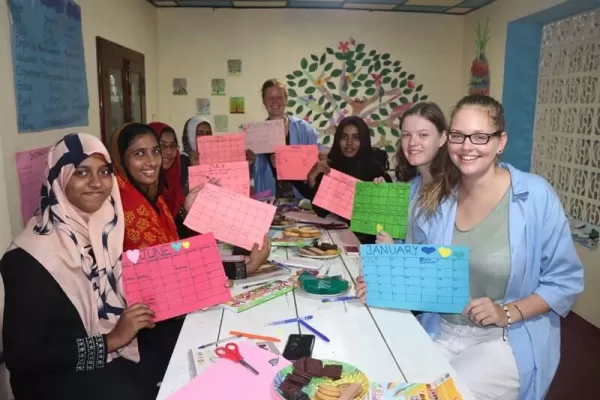
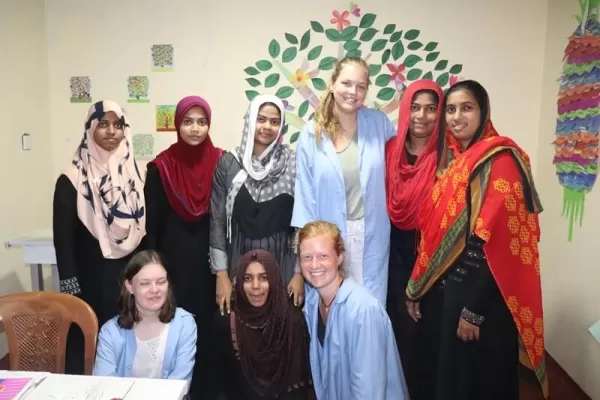
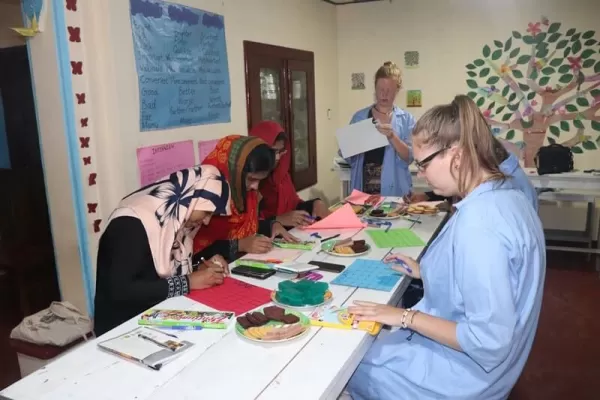









Living
Living
Transfers do Aeroporto
Os voluntários serão recolhidos no Aeroporto Internacional Colombo Bandaranaike por um representante da equipa de coordenação local no dia de início do programa, durante o horário de embarque no aeroporto. Os participantes serão também levados para o aeroporto após a conclusão do programa, durante o horário de chegadas ao aeroporto (mediante um custo adicional). As taxas de desembarque de regresso poderão ser pagas pelos participantes quando estes se encontram no Sri Lanka.
Nota: Transfer de chegada (partilhado) dentro de horários pré-definidos aos sábados, incluído no preço do programa (intransmissível). Haverá 2 transfers partilhados do aeroporto para Galle todos os sábados (manhã e tarde/noite). Um transfer privado também está disponível por 100 USD e pode ser providenciado no sábado ou para os participantes que cheguem em qualquer data diferente da data de início.
Orientação
Uma orientação detalhada do programa será fornecida antes do início do seu programa de voluntariado. Todos os voluntários, à chegada, receberão uma apresentação de boas-vindas, incluindo formação em saúde e segurança, apresentação cultural, apresentação específica do projeto e visita de orientação pela região. A nossa equipa também o auxiliará com as aulas e o planeamento do currículo, conforme necessário. Terá também acesso à nossa biblioteca interna, composta por manuais, livros e diversos materiais didáticos para auxiliar no planeamento das aulas e fornecer orientação geral.
Acomodação
Os voluntários que participarem nos programas em Galle, no Sri Lanka, ficarão alojados no pitoresco bairro de Unawatuna, com vista para a famosa Praia de Unawatuna e para as águas azul-turquesa do Oceano Índico. Os nossos participantes ficarão alojados em duas casas de voluntários, localizadas próximas uma da outra.
A casa à beira-mar está localizada do outro lado da rua da Praia de Unawatuna e a cerca de 100 metros da outra casa de voluntários. Dispõe de 12 quartos espaçosos de tamanhos variados, com casas de banho privativas, todos com ar condicionado (a maioria dos quartos também tem varandas exteriores anexas). Há também uma sala de jantar separada, um pequeno jardim, sala de estar, terraço e um amplo escritório com pessoal permanente no local. A propriedade está protegida por várias câmaras de CCTV e uma equipa de segurança noturna no local.
A outra casa maior para voluntários tem 13 quartos com casas de banho privativas. A maioria destes quartos tem vista para o mar! Existe uma piscina exterior privada de 12 metros de comprimento, rodeada por vegetação tropical. A casa dispõe ainda de 3 cozinhas, além de 3 salas de estar/comuns (uma por piso), uma sala de jantar espaçosa e um jardim exterior privado com áreas de estar/relaxamento.
O escritório fica no rés-do-chão da casa, junto à entrada principal – é a partir daí que a equipa local trabalha todos os dias. A casa está localizada num bairro tranquilo e repleto de natureza, adjacente a um pequeno templo budista (afastado das principais zonas turísticas). Para garantir a segurança dos participantes, estão instaladas câmaras CCTV e um segurança interno para vigilância noturna. Estão disponíveis água quente e Wi-Fi de alta velocidade, e pode optar por ar condicionado e lavandaria por um custo adicional.
Melhorias para quartos privados (individuais e duplos) estão disponíveis por um custo adicional. Durante os meses de maior movimento, os participantes recebem ainda alojamento em pousadas próximas, caso exista baixa capacidade nas casas dos voluntários ou não haja disponibilidade de quartos privados. Os quartos privados são oferecidos em pousadas a uma curta distância da casa dos voluntários. Os voluntários ficam alojados nas pousadas privadas e caminham até à casa dos voluntários para fazerem as refeições com os outros voluntários.
Todos os participantes com 40 anos ou mais receberão apenas um quarto privado, não sendo possível acomodá-los em dormitórios partilhados. Serão aplicadas taxas adicionais para upgrade de quarto privado.
Refeições
Oferecemos 3 refeições preparadas na hora por dia durante toda a semana (de segunda-feira a domingo): pequeno-almoço, almoço e jantar. Os ingredientes frescos são comprados nos mercados locais para a preparação destas refeições. As casas dos voluntários contam com cozinheiros da comunidade local que vêm diariamente preparar refeições locais frescas, caseiras e saborosas para os voluntários. Podemos atender a uma variedade de dietas especiais, incluindo vegan, sem glúten, sem frutos secos e intolerantes à lactose. Caso exista alguma outra alergia ou necessidade alimentar mencionada previamente, faremos sempre o possível para as atender. Os voluntários que ficam alojados em quartos privados perto da casa dos voluntários tomam geralmente o pequeno-almoço na casa e caminham até à casa para almoçar e jantar.
Transporte local
O transporte local de ida e volta para o projeto está incluído todos os dias.
Durante o Tempo Livre
Há muito para fazer durante o tempo livre e fins de semana para os voluntários. As seguintes atividades são oferecidas gratuitamente e estão incluídas na taxa do programa:
Sessão Noturna de Yoga no Terraço (semanal)
Noites de cinema em projetor de ecrã grande na casa (semanal)
Passeio de bicicleta pelos arrozais e aldeias locais (mensal)
Churrasco para voluntários e funcionários no jardim (mensal)
Pesca Noturna para quem gosta de pescar (on demand)
As seguintes atividades são populares aos fins de semana (ou mesmo diariamente) que os nossos voluntários adoram fazer na região (por um custo adicional):
Aulas de surf
Safari de elefantes
Observação de baleias (durante a época)
Caminhadas na floresta tropical
Passeio de praia em praia
Aula de culinária local
Passeio a pé por Galle
Visita ao mercado de especiarias local
Visita ao Forte de Galle
Também o encorajamos a participar no nosso Tour Cultural e de Aventura Sri Lanka de 7 dias e 6 noites, especialmente selecionado, que reúne o melhor da beleza e diversidade da ilha numa semana. O passeio pode ser adicionado ao itinerário do seu programa antes ou depois do programa de voluntariado.
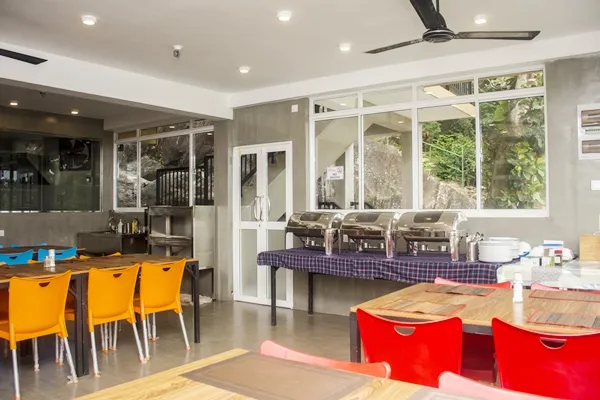
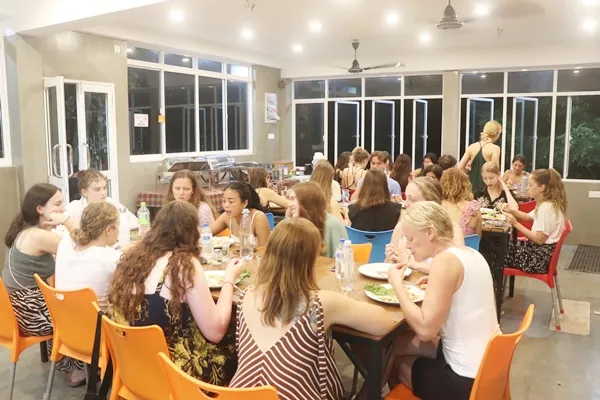
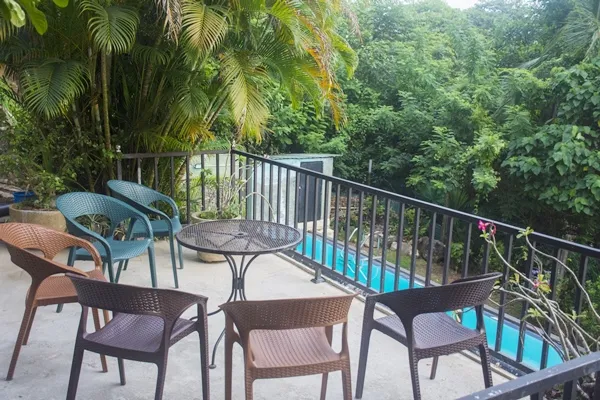
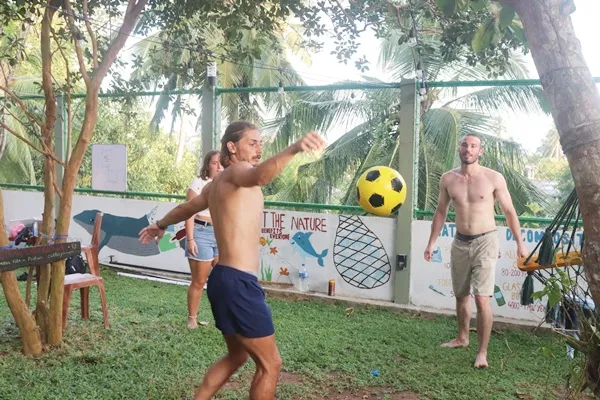
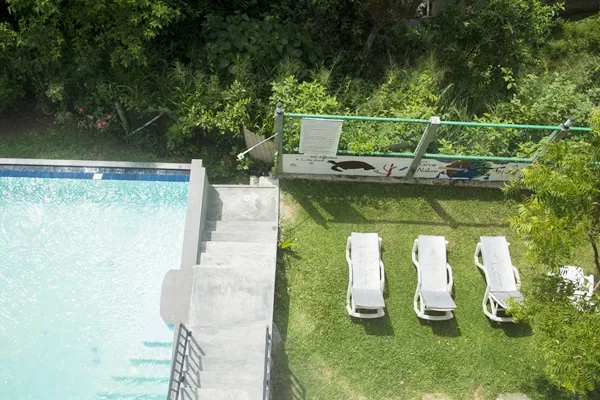
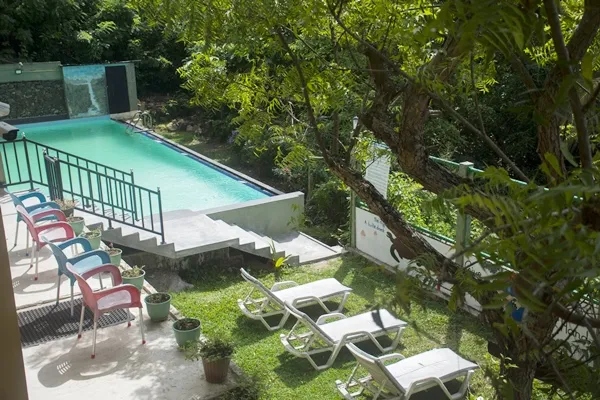
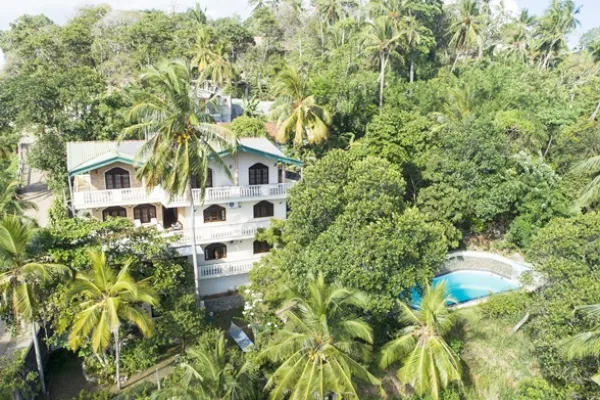
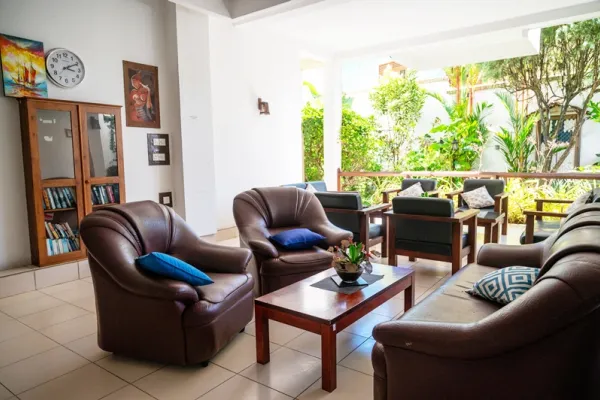
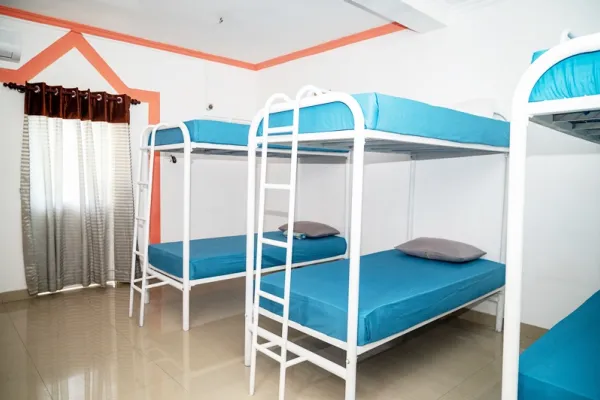
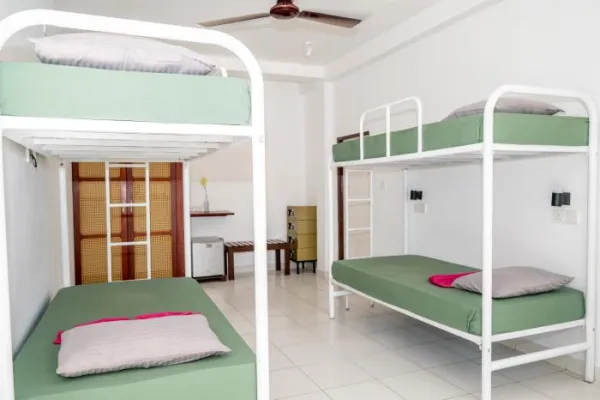
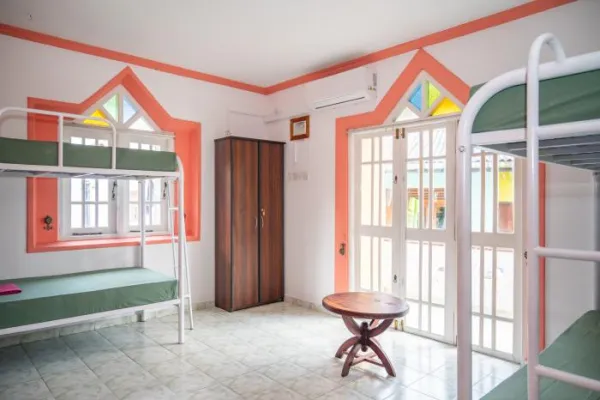
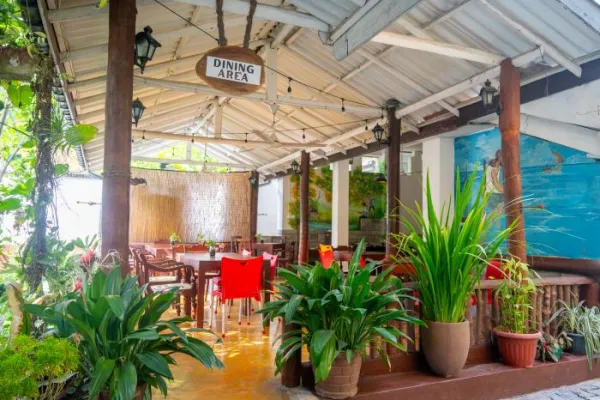
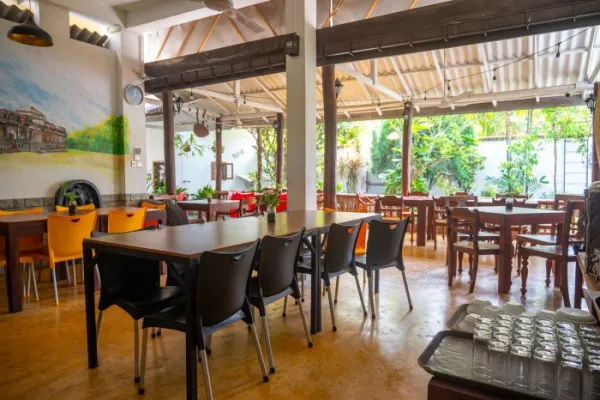
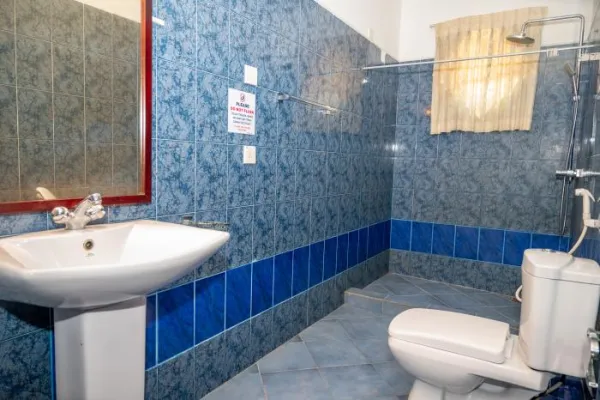
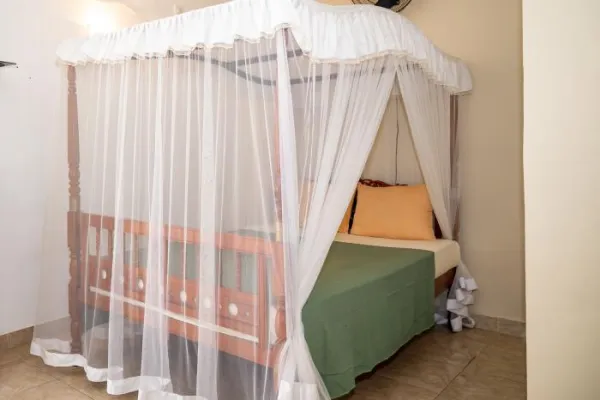
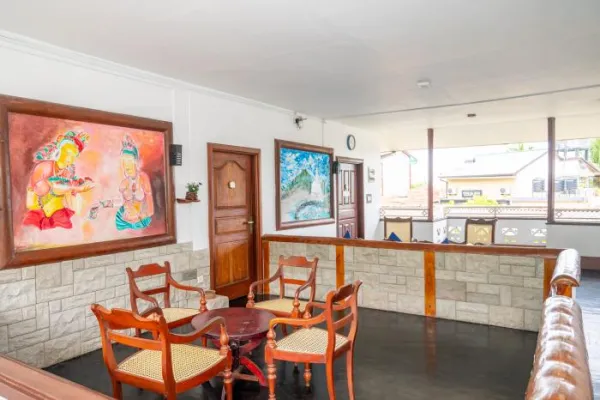
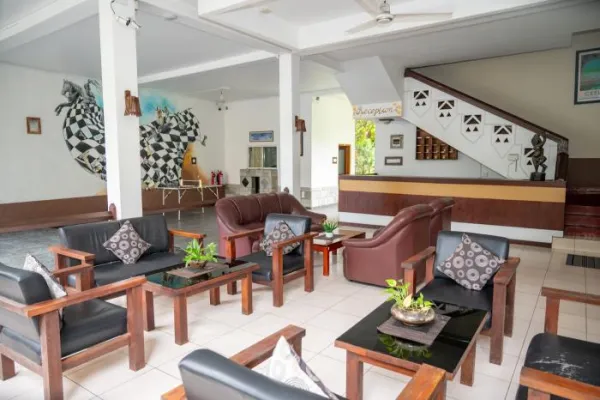
Dates
Dates
January
17
24
31
February
07
14
21
28
March
07
14
21
28
April
04
11
18
25
May
02
09
16
23
30
June
06
13
20
27
July
04
11
18
25
August
01
08
15
22
29
September
05
12
19
26
October
03
10
17
24
31
November
07
14
21
January
16
23
30
February
06
13
20
27
March
06
13
20
27
April
03
10
17
24
May
01
08
15
22
29
June
05
12
19
26
July
03
10
17
24
31
August
07
14
21
28
September
04
11
18
25
October
02
09
16
23
30
November
06
13
20
27
Costs
| Duration |
Program Fee
|
Choose your currency
|
|---|---|---|
| 2 Weeks | $835 | |
| 3 Weeks | $995 | |
| 4 Weeks | $1155 | |
| 5 Weeks | $1315 | |
| 6 Weeks | $1475 | |
| 7 Weeks | $1635 | |
| 8 Weeks | $1795 | |
| Extra Week | $250 |
Please Note: A registration fee of is charged in addition to the program fee. This fee is valid for one year, during which participants may enroll in multiple programs. A 5% international banking fee applies to credit card payments of program fee made in USD or AUD.
O que você está pagando?
- Assistência e suporte 24 horas da equipe
- Informações abrangentes antes da partida
- Alojamento dedicado para voluntários com WiFi (quartos compartilhados)
- Traslado compartilhado do aeroporto na chegada em horários designados pela manhã ou à tarde
- Orientação e treinamento na chegada
- Café da manhã, almoço e jantar todos os dias
- Colocação garantida do projeto
- Transporte local para projetos em van com ar condicionado particular ou tuk tuk
- Equipe de operações bilíngue experiente no local
- Suporte de equipe dedicada das 6h às 20h todos os dias
- Suporte de emergência local 24 horas por dia, 7 dias por semana
- Aula semanal de ioga no terraço
- Noites semanais de cinema em projetor de tela grande
- Passeio mensal de bicicleta pelos campos de arroz e vilas locais
- Jantar especial mensal de churrasco
- Seguro de viagem e médico (disponível por um custo extra)
- Certificado de Participação (mediante solicitação)
O que NÃO está incluído?
- Taxa de visto
- Passagem aérea internacional
- Traslados de ida e volta do aeroporto de Galle para o aeroporto de Colombo (disponíveis com custos extras)
- Vacinações
- Quaisquer despesas pessoais
- Excursões e viagens locais adicionais
- Taxas de upgrade de quarto privado
- Taxas para noites adicionais de acomodação
FAQ's
Alojamento, refeições e vida diária
-
Como faço para chegar à acomodação e ao local do programa?
-
Seu coordenador irá encontrá-lo no aeroporto e levá-lo até sua acomodação, apresentando-o à nossa equipe e aos outros voluntários. Em seguida, você participará de uma orientação que abordará tópicos como cultura, costumes, segurança, locais, sua alocação, cumprimentos, transporte local etc. No primeiro dia de trabalho, a equipe local o guiará até o local do seu projeto. O transporte local está incluído para todos os participantes dos programas em Galle. Para os participantes que atuam como voluntários em Kosgoda, o local do projeto também fica próximo à acomodação.
-
Poderia me dar mais informações sobre acomodação e alimentação?
-
Os voluntários que participam dos programas em Galle, Sri Lanka, ficam hospedados no charmoso bairro de Unawatuna, com vista para a famosa Praia de Unawatuna e as águas turquesas do Oceano Índico. Nossos participantes ficam em duas casas de voluntários localizadas próximas uma da outra.
A casa à beira-mar está localizada em frente à praia de Unawatuna e a cerca de 100 metros da outra casa de voluntários. Possui 12 quartos espaçosos de tamanhos variados, cada um com banheiro privativo e ar-condicionado (a maioria dos quartos também possui varanda privativa). Há ainda uma sala de jantar separada, um pequeno jardim, sala de estar, terraço e um amplo escritório com equipe permanente no local. A propriedade é protegida por diversas câmeras de segurança e uma equipe de segurança noturna no local.
A outra casa maior, destinada aos voluntários, possui 13 quartos com banheiros privativos. A maioria desses quartos tem vista para o mar! Há uma piscina privativa ao ar livre de 12 metros, cercada por vegetação tropical. A casa também conta com 3 cozinhas, além de 3 salas de estar/convívio (uma em cada andar), uma ampla sala de jantar e um jardim privativo com áreas de estar e descanso.
O escritório fica no térreo da casa, perto da entrada principal – é de lá que a equipe local trabalha diariamente. A casa está localizada em um bairro tranquilo e arborizado, ao lado de um pequeno templo budista (afastado das principais áreas turísticas). Para garantir a segurança dos participantes, há câmeras de vigilância instaladas e um segurança residente para vigilância noturna. Água quente e Wi-Fi de alta velocidade estão disponíveis, e você pode optar por ar-condicionado e serviço de lavanderia mediante uma taxa adicional.
Quartos privativos (individuais e duplos) estão disponíveis mediante pagamento de taxas adicionais. Durante os meses de maior movimento, os participantes também podem se hospedar em pousadas próximas, caso haja baixa disponibilidade nas casas dos voluntários ou indisponibilidade de quartos privativos. Os quartos privativos ficam em pousadas a uma curta distância a pé das casas dos voluntários. Os voluntários se hospedam nas pousadas e caminham até a casa dos voluntários para fazer as refeições com os outros voluntários.
Todos os participantes com 40 anos ou mais terão direito a um quarto individual e não serão acomodados em dormitórios compartilhados. Será cobrada uma taxa adicional para a acomodação em quarto individual.
Se você tiver alguma restrição alimentar, por favor, mencione-a no formulário de inscrição.
-
Terei tempo livre durante o meu programa? Posso fazer passeios turísticos durante o meu programa?
-
Dependendo da sua localização no projeto, você terá as noites e os fins de semana livres para explorar a cidade e seus arredores. Você pode aproveitar as noites para visitar mercados locais e outros lugares próximos ao local do seu projeto. Aproveite ao máximo seus fins de semana explorando o Sri Lanka por completo.
Incentivamos nossos voluntários a viajar. Criamos diversos passeios de fim de semana que podem ser reservados na seção "Passeios Adicionais" em "Minha Conta". Seu coordenador local também o ajudará a reservar e organizar os passeios quando você estiver no Sri Lanka. -
Que lugares posso explorar durante minha viagem?
-
Locais como a Reserva Florestal de Sinharaja, a Montanha Rumassala e o Forte de Galle são as principais atrações de Galle. Os voluntários têm liberdade para planejar escapadas rápidas e explorar o Sri Lanka durante os fins de semana. Também podem relaxar à beira-mar e saborear os deliciosos frutos do mar. Os participantes saem nos fins de semana para explorar diferentes destinos, como Mirissa, Ella, Kandy, Nuwara Eliya ou o Parque Nacional de Yala.
-
Haverá mais despesas quando eu chegar ao Sri Lanka?
-
A taxa do programa inclui acomodação, traslado do aeroporto, orientação, guia de pré-viagem e suporte da equipe local 24 horas por dia, 7 dias por semana. Você precisará arcar com suas despesas pessoais, como transporte, telefone, internet, compras, passeios turísticos, traslado de ida e volta ao aeroporto, excursões de fim de semana etc. Recomenda-se levar entre US$ 80 e US$ 100 por semana para despesas básicas, como água, transporte local, telefone etc.
-
Onde posso trocar dinheiro no Sri Lanka?
-
Você pode trocar dinheiro em qualquer banco ou no aeroporto apresentando seu passaporte. Caixas eletrônicos estão convenientemente localizados em todas as principais cidades do Sri Lanka.
Entre em contato com ex-voluntários
-
Como posso entrar em contato com ex-participantes do programa Volunteering Solutions no Sri Lanka, bem como com outros ex-voluntários e voluntários atuais?
-
Incentivamos os voluntários a se conectarem com ex-participantes do programa Volunteering Solutions e também com outros participantes que estão se juntando aos nossos projetos. Recomendamos que você participe da página ou do grupo do Volunteering Solutions no Facebook para se conectar com outros participantes e com nossa equipe. Para ler entrevistas com ex-participantes, visite a seção "Conheça um Voluntário" em nosso site.
-
Você pode me colocar em contato com outros voluntários que já participaram deste programa?
-
Só podemos fornecer os dados de contato de ex-voluntários que consentiram em compartilhar suas informações. No entanto, existe um grupo no Facebook para ex-voluntários e voluntários atuais, ao qual você pode se juntar. Há também centenas de avaliações online de nossos ex-voluntários, além de publicações em nossas redes sociais, como Instagram , TikTok e nosso canal no YouTube .
-
Posso conhecer outros voluntários antes da minha chegada?
-
A melhor coisa a fazer é entrar no nosso grupo do Facebook e publicar uma mensagem detalhando a sua data de início. Dessa forma, você poderá se conectar diretamente com outros voluntários que começarão na mesma época que você.
-
Posso compartilhar o voo com outros voluntários?
-
Não organizamos voos para voluntários, mas se você souber a data de sua chegada e encontrar outros voluntários viajando do mesmo local, vocês podem reservar os voos juntos.
Informações sobre voos, chegada e vistos
-
A Volunteering Solutions pode ajudar com o visto?
-
Os participantes que viajarem para o Sri Lanka precisam obter uma Autorização Eletrônica de Viagem (ETA) antes da chegada ou na chegada ao país. Você pode solicitar a ETA online e a aprovação será comunicada por e-mail. Mais informações serão fornecidas após a sua inscrição no programa.
-
Quais são as companhias aéreas recomendadas para voar para o Sri Lanka?
-
O Aeroporto Internacional Bandaranaike (CMB) em Colombo possui excelentes conexões com os principais aeroportos do mundo, oferecendo fácil acesso a voos. As companhias aéreas recomendadas são:
Companhia aérea do Sri Lanka
Air India
Mihin Lanka
Spicejet
Emirados
Existem voos domésticos frequentes de Colombo para Galle e Kegalle.
Saúde, Segurança e Suporte
-
Preciso comprar um plano de saúde?
-
Sim, é obrigatório que todos os participantes tenham um seguro de viagem com cobertura médica. Caso não possua um seguro de viagem, você pode adquirir o Seguro de Viagem e Saúde conosco por um valor adicional simbólico. Para oferecer a melhor opção aos nossos participantes, disponibilizamos uma cobertura de seguro abrangente em parceria com uma seguradora líder de mercado. Para consultar os detalhes da apólice de seguro, clique aqui.
-
De modo geral, quão seguro é o Sri Lanka?
-
O Sri Lanka é um dos destinos tropicais mais populares da Ásia e atrai viajantes do mundo todo. Os habitantes locais são simpáticos e prestativos, porém, recomenda-se consultar seus coordenadores locais antes de sair sozinho ou visitar qualquer outro lugar no Sri Lanka. Também é recomendável estar com seu grupo sempre que sair ou ficar fora até tarde da noite. É altamente recomendável seguir as regras e regulamentos de segurança fornecidos pelo coordenador local.
-
Quais imunizações/vacinas eu precisarei tomar?
-
Recomendamos que consulte seu médico ou especialista em medicina de viagens antes de viajar para o Sri Lanka. No entanto, recomendamos que tome as vacinas gerais, como:
Hepatite A e B
Tifóide
Visão geral do programa e processo de inscrição
-
Existem requisitos necessários para participar dos programas de voluntariado no Sri Lanka?
-
A idade mínima exigida para os programas no Sri Lanka varia de acordo com o programa. Para alguns programas, a idade mínima para participantes individuais é de 16 anos, enquanto para outros é de 18 anos. Os voluntários precisam ter a mente aberta e uma atitude flexível para trabalhar em um ambiente novo e diferente. Devem trazer energia e entusiasmo para fazer a diferença. O participante deve estar em boa saúde.
-
Poderia me dar mais informações sobre os locais do programa no Sri Lanka?
-
Nossos programas de voluntariado estão localizados na bela região sul do Sri Lanka, com vagas disponíveis em Galle e Kosgoda e arredores. Os voluntários alocados aos projetos em Galle ficarão hospedados em Unawatuna, uma cidade litorânea vibrante e pitoresca, situada a uma curta distância de carro do centro de Galle. Conhecida por sua praia dourada em formato de meia-lua e águas calmas e turquesas, Unawatuna é um destino favorito para nadar, praticar snorkel e relaxar à beira-mar.
A cidade oferece uma atmosfera tranquila com muitos cafés, restaurantes e pequenas lojas, além de acesso a templos, mirantes panorâmicos e trilhas na natureza. Sua comunidade acolhedora e a vibrante cultura praiana fazem de Unawatuna uma base ideal para voluntários, oferecendo conforto e a oportunidade de vivenciar a autêntica vida costeira do Sri Lanka enquanto participa de um trabalho significativo.
-
Como faço para me inscrever em um programa e quando preciso efetuar o pagamento?
-
Você pode reservar sua vaga preenchendo o formulário de inscrição online e pagando a taxa de inscrição. O pagamento da taxa do programa pode ser feito posteriormente ou em parcelas, porém, o pagamento integral deve ser efetuado 45 dias antes do início do programa. Se você for se voluntariar em grupo, também poderá preencher um formulário de inscrição para grupos. A taxa de inscrição inicial será reembolsada caso não seja possível oferecer uma vaga no programa, e você terá a flexibilidade de solicitar uma alteração da data de início até o prazo de 45 dias para o pagamento (sujeito à disponibilidade de outras datas).
-
Quando devo me candidatar aos programas de voluntariado no Sri Lanka?
-
Como as vagas em nossos programas são limitadas e seguimos o critério de inscrição por ordem de chegada, recomendamos que os voluntários em potencial reservem seus programas com bastante antecedência para garantir suas vagas. Inscrever-se e garantir sua vaga com antecedência também permite que você se prepare melhor para a viagem — para tomar as vacinas recomendadas ou obrigatórias e reservar seu voo com antecedência suficiente para obter o melhor preço. Além disso, garantir sua vaga com antecedência significa que você manterá o preço vigente no site no momento da inscrição e não estará sujeito a aumentos anuais de taxas.
-
Posso me inscrever junto com um amigo?
-
Sim! No nosso formulário de inscrição, você pode indicar o nome do(s) amigo(s) ou parceiro(s) com quem está se inscrevendo. Vocês serão alocados no mesmo projeto, acomodação e no mesmo dormitório (sujeito a restrições quanto aos dormitórios masculinos e femininos). Há também a opção de upgrade para um quarto individual na casa dos voluntários, sujeito à disponibilidade e ao pagamento da taxa correspondente. Consulte nossa equipe para obter informações sobre preços e disponibilidade.
-
Quanto tempo levará para processar minha inscrição? Minha inscrição será aceita?
-
Após concluir sua inscrição, sua conta personalizada "Minha Conta" será ativada. Você precisará fazer o upload do seu currículo e da sua foto nessa conta. Nossa equipe e a plataforma de recrutamento levam de 10 a 12 dias para analisar sua inscrição. Após a análise do seu currículo e documentos, sua reserva será confirmada e a confirmação será atualizada em sua conta "Minha Conta". Alguns projetos exigem verificação de antecedentes criminais, informação que consta nas especificações do projeto. A aprovação da sua inscrição depende da sua qualificação e dos critérios de elegibilidade de cada projeto.
-
Posso fazer trabalho voluntário em grupo?
-
Para voluntários individuais
Você chegará na mesma data de início que outros voluntários que se juntarem ao mesmo período e fará parte de um grupo para o seu programa. Isso significa que vocês compartilharão o mesmo dia de orientação, acomodação e experiência geral; uma ótima maneira de conhecer novas pessoas e fazer amigos do mundo todo. A melhor época para participar, se você quiser conhecer muitos outros voluntários, é julho e agosto, pois esses são os meses mais populares.
Para grupos
Se você já tem um grupo, também aceitamos inscrições de grupos universitários e de faculdades, grupos de escolas de ensino médio, equipes corporativas, famílias e grupos de amigos. Seu grupo pode preencher nosso Formulário de Inscrição para Grupos, fornecendo detalhes como o número de participantes, a duração desejada, o orçamento e o destino. Nos dedicamos a encontrar a opção ideal para o seu grupo, e podemos personalizar o roteiro para garantir que você tenha exatamente a experiência que procura. Para grupos de cinco ou mais pessoas, podemos até mesmo criar programas especiais que combinam trabalho voluntário significativo com imersão cultural e oportunidades de viagem. Todos os nossos programas, sejam individuais ou em grupo, são projetados para serem seguros, acessíveis e gratificantes, oferecendo a cada voluntário uma experiência memorável e impactante. -
A VolSol fornece carta de recomendação ou certificado após a conclusão do programa?
-
Sim, forneceremos o certificado após a conclusão bem-sucedida do programa. O certificado é fornecido mediante solicitação.
-
Quando preciso chegar ao Sri Lanka para o meu programa? O que acontecerá quando eu chegar ao país?
-
Todos os voluntários devem chegar ao Aeroporto Internacional Bandaranaike (CMB) em Colombo, Sri Lanka, na data de início do projeto. Os voluntários serão recebidos no aeroporto pelo coordenador ou representante local e levados até suas respectivas acomodações. A programação dos próximos dias será explicada na chegada.
-
A VolSol oferece desconto se eu escolher mais de um programa ou se eu for um voluntário que já participou anteriormente?
-
Se você planeja participar de vários programas durante sua viagem, pagará a taxa de inscrição apenas uma vez. Sua taxa de inscrição é válida por um ano (a partir da data da inscrição). Você não precisará pagar a taxa de inscrição novamente se participar dentro desse período. Para nossos voluntários que retornam, oferecemos um desconto de US$ 50 na taxa de inscrição para o próximo programa VolSol.
-
O que acontece se o programa não estiver disponível?
-
Reembolsaremos a taxa de inscrição caso o programa não esteja disponível após a sua inscrição.


























